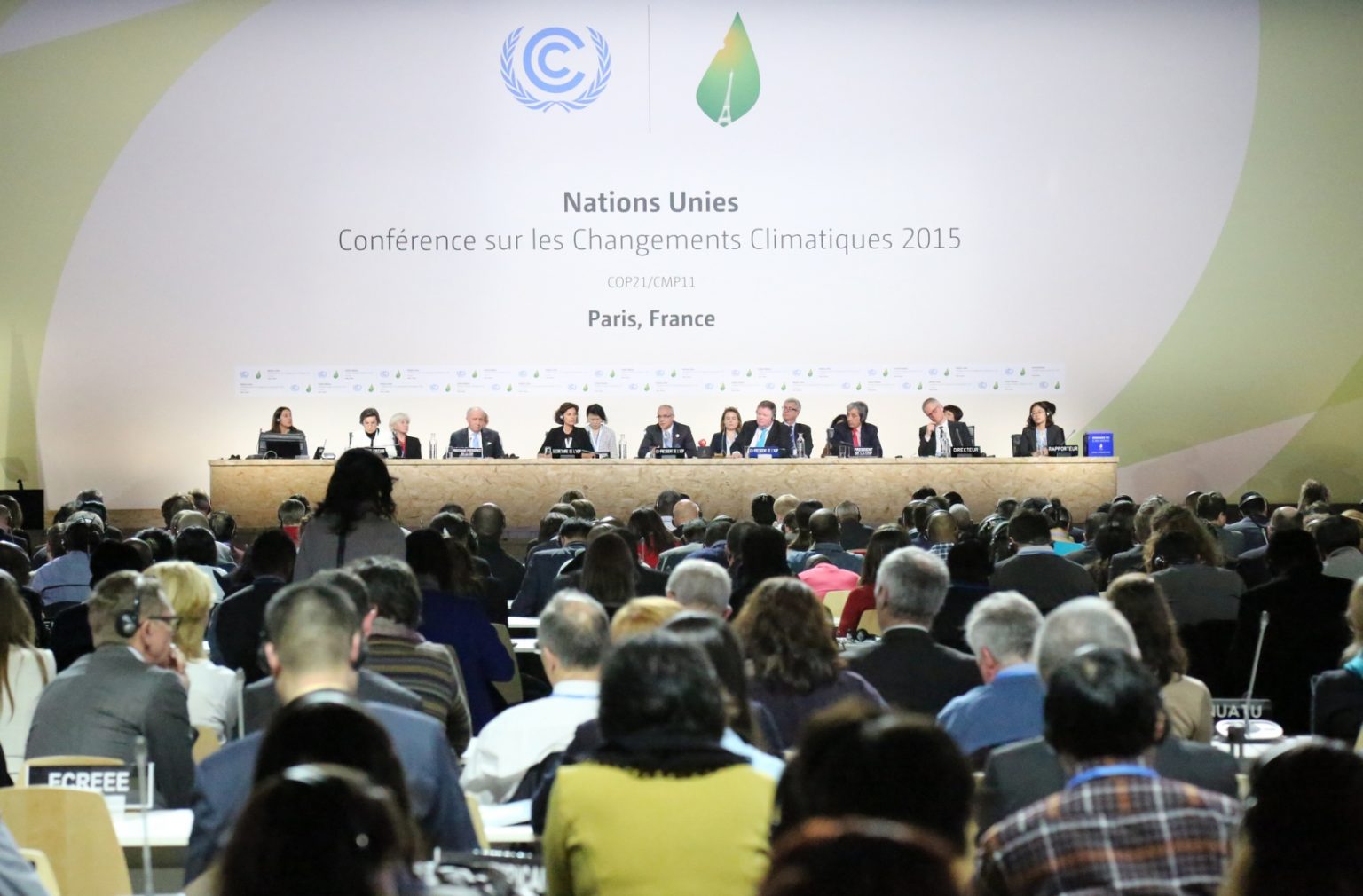The end of the fossil fuel era is being signalled loud and clear here at the Paris climate conference as ministers enter the final hours of negotiations.
It’s crunch time and everyone is saying the elements needed for an ambitious deal are still on the table. An essential part of this includes establishing a clear long-term goal to guide investor confidence toward a low-carbon society.
And with a 1.5C degree target option currently alive in the text, along with words such as ‘decarbonisation’ and ‘carbon neutral’, the signal couldn’t be clearer.
“The message that we expect this conference to send investors in the fossil fuel industry is get out now,” said Michael Brune, executive director of the Sierra Club. “There is no future in fossil fuels.”
Pointing to the 1.5C target, Kasia Kosonen from Greenpeace added: “We are now for the first time really having a serious debate around strengthening the temperature target to 1.5C and recognising that 2C is already too much. This de facto means that we are talking about moving away from fossil fuels in a short period of time.”
Policy Framework
And it’s not just those inside the negotiations that are looking for clarity. Businesses have also been calling for a clear long term goal, stressing its importance for investors.
As Michael Jacobs, senior advisor at the New Climate Economy project, explained: “Emissions will be cut through the application of investment and technology in a whole series of infrastructure projects… that’s how you actually do this. And the piece of paper that will be signed is a push to those processes but it doesn’t guarantee them.”
“The way it pushes them is it requires government to respond to goals by putting in place policies which will then help drive investment, and demand creation, and technological innovation.”
Alden Meyer, strategy director at the Union of Concerned Scientists, agreed – and he’s been to virtually all the major climate talks since 1995.
He explained that a Paris deal must send a clear signal to the global industry that investments can shift from high-polluting industries towards clean energy – a trend he said we were already witnessing.
“That will affect their decisions on trillions of dollars of asset investments,” Meyer told The Guardian. “If they think that governments are serious about going where the science says we need to go, then they will respond in kind. If they think that governments are wishy-washy, and are wobbling or uncertain, then they will hedge their bets.”
It seems the oil and gas industry is at the very least hearing what’s being said. But will it listen?
The Industry’s Future
We’re already seeing dramatic shifts in the energy market signalling the end of coal. According to estimates by commercial intelligence company Wood Mackenzie more than 65 per cent of the world’s coal production is unprofitable as prices decline for the fifth year in a row.
Last Friday at a side-event inside the COP21 delegates’ space, oil executives from Shell, Total, and Statoil, along with industry trade bodies, sat down to discuss the future of their industry. While there was little talk of renewables, the industry figures recognised that there was strong global pressure to cut fossil fuel emissions.
Elliot Diringer, executive vice president of Virginia-based non-profit C2ES – and who was described as being close to negotiators – explained: “Paris has already sent many signals… The [pledges], the presence of world leaders, the agreement itself… [and] the debate on long term goals such as the decarbonisation of the economy.”
He continued: “If all of that comes together what we’ll have is a reshaped, reframed political and policy context. The question for all stakeholders is how do we engage coming out of Paris to achieve the transformation we keep talking about?”
Jean-Francois Gagne, head of technology policy division at the International Energy Agency, told industry figures in the room: “We have to realise the rate at which we decarbonise is going to have to increase, so we need to think about [what we invest in] in the future.”
Solutions which “would give credibility” to the industry, he said, included energy efficiency and renewables, as well as ending coal and reducing methane emissions from gas.
As Margaret Mistry, sustainability communications leader at Statoil, added: “We need to relate to the climate goals that people are talking about outside of our industry. Whether it’s two degrees or net zero emissions. It’s important to speak the same language.”
“From our point of view,” she continued, “the stronger the agreement the better. What we’re seeking is predictability and investment signals. The more certainty… the better it is for us to plan our business.”
Photo: UN Climate Change via Flickr
Subscribe to our newsletter
Stay up to date with DeSmog news and alerts







